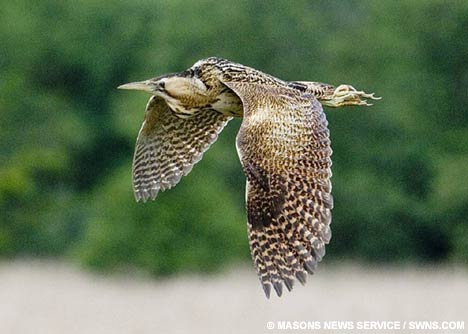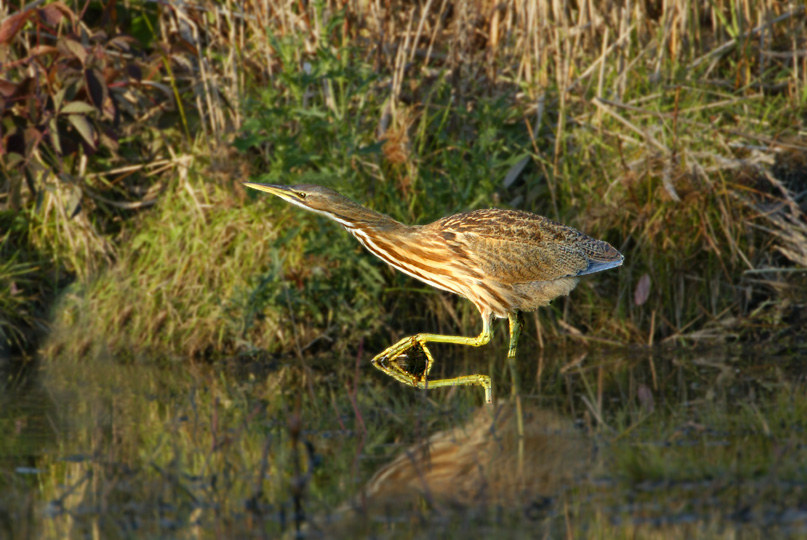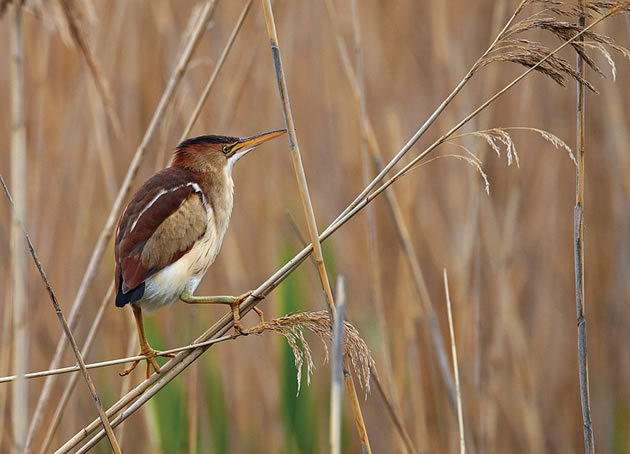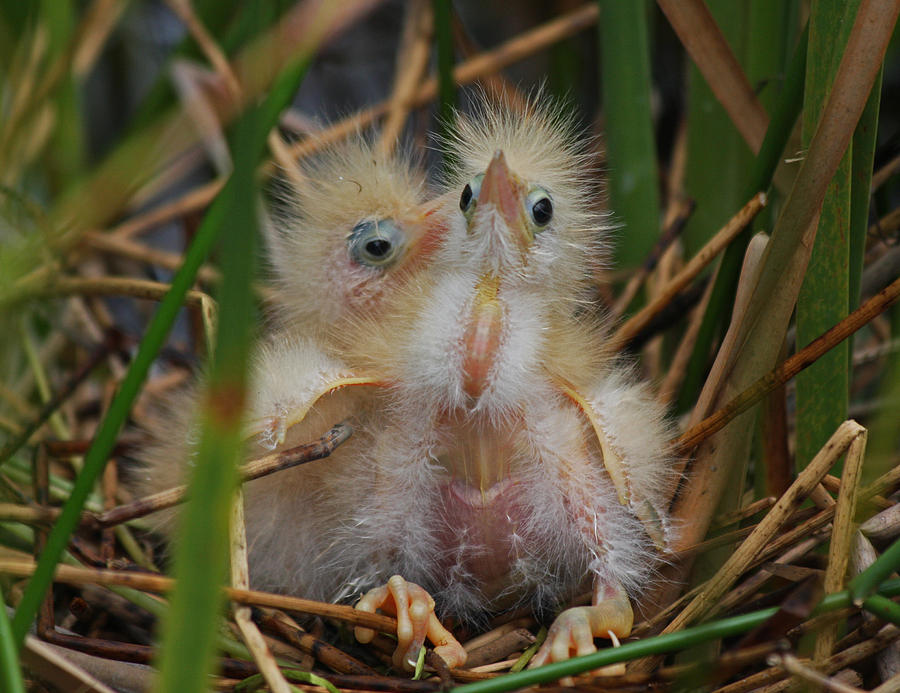



THE BITTERN.
THERE has been much discussion as to the word rendered bittern in the Bible. Some have supposed it referred to a different bird than the one usually known by that name; but the prevailing opinion is that the common bittern is the one referred to. The bittern resembles the heron, but is only four inches in length, and has a less powerful bill. It is pale yellow, spotted with black. It lives by the margins of streams, and builds its nest amid the rushes. It lays seven or eight eggs, of greenish tinge, and the young develop so rapidly that in three days after hatching they are able to follow their parent in search of food. It feeds on frogs and insects, and on vegetables when other food is scarce.
The voice of this bird is something remarkable, considering its size, and is mournful and desolate in the extreme. The lower part of the windpipe, dividing into the lungs, is fitted with a loose membrane, capable of holding a large quantity of air, the sudden explosion of which produces this hollow booming, like the booming of cannon heard through water. It may be heard at the distance of a mile;
and so baneful is this sound that by some ignorant people it is regarded superstitiously as the fore-runner of evil.
The prophet Zephaniah refers to the bittern in connection with the ruins of Nineveh: "I will make Nineveh a desolation, and dry like a wilder-ness, and flocks shall lie down in the midst of her; all the beasts of the nations, and both the cormorant and the bittern shall lodge in the upper lintels of it; their voice shall sing in the windows." Critics have been disposed to dispute the right of the bittern to occupy this place, saying that some other bird or animal must have been intended; but Nineveh was built on the left bank of the Tigris, and from information given by travelers, we know the ruins to have been not without subterranean canals, by which water could be conveyed, making it a suitable lodging place for the bittern. The ruins, now scarcely above ground, might afford lodging places for the bittern upon the upper lintels and windows. Isaiah refers to the bittern as finding habitation amid the waste places of Babylon, whose garden canals, leading, no doubt, from the river, may well be imagined to have watered the country long after it had been made desolate, and afforded nourishment to vegetation and attractions for the bittern: "I will also make it a possession for the bittern."
—N. Y. Observer